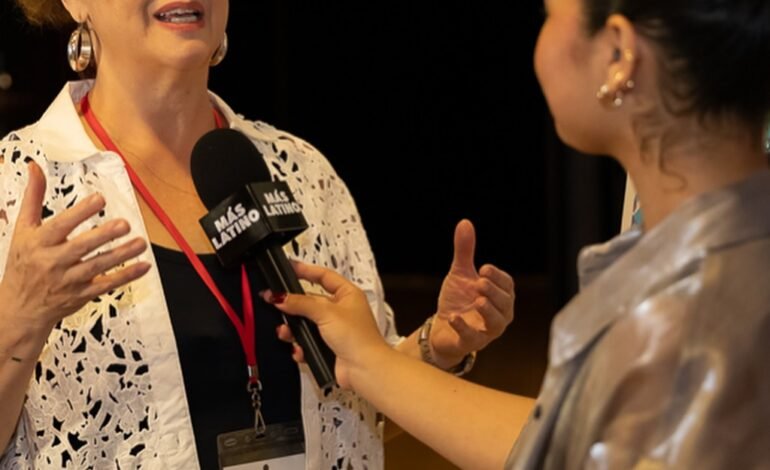Opening of the Latino CineFest in Boston: We will not remain silent!
CineFest Latino Boston opened its 3rd edition with a free community screening in East Boston, under the theme "We Will Not Be Silent!" Founder and Executive Director Sabrina Avilés

Photo taken from CineFest Latino Boston
The CineFest Latino opened its doors 3rd edition, on September 18th, with a community screening of short films. Its main purpose was to bring the community closer to cinema produced with the ideas and stories of its people. This screening was made possible in part thanks to the support of the Boston Cultural Council, which supported this initiative as a way to cultivate unity and a sense of belonging within the community.
The screening took place in East Boston, better known as "Eastie," one of the predominantly Latino and immigrant neighborhoods in the Boston area. ZUMIX, a nonprofit organization dedicated to strengthening community through art and creativity, welcomed the audience free of charge. Young people, seniors, teachers, and others reflected on the event's accessibility and inclusion.
CineFest Latino Boston connects with the community in East Boston
The program featured subtitles and simultaneous translation for the discussion, making it possible to include a diverse audience. At the end of the event, there was a question-and-answer session with the filmmakers in attendance, Jeremy Levine and Jared Katsiane. Both shared with the audience not only their creative processes but also the ethics behind each visual decision.
“Bringing the screening to the community for free is more of a tribute to Latinos and what they do. Because this is a country built by immigrants, contrary to what the narrative says [referring to negative accusations toward immigrants].” —Sabrina Avilés
With these words, Sabrina Avilés, founder and executive director of CineFest Latino Boston, introduced the event. She added that in this way, immigrants also resist, taking over and creating community spaces to share art that tells their stories.
Furthermore, Avilés emphasized, “with what's happening now, with us being silent and humiliated, this is to bring optimism to the community.” For the filmmaker, it was crucial to send the message that immigrants, particularly Latinos, would not remain silent. “WE WILL NOT REMAIN SILENT!” she said, explaining why that was the name of the short film program selected for this event.
Short Film Program: WE WILL NOT KEEP SILENT!
The return
Jeremy Levine directed this 23-minute short documentary set between Guatemala and the United States. This story, filmed over six years, portrays the journey of Geovanny, a 12-year-old Guatemalan boy who is separated from his father six months after being detained at the U.S. border. With his childhood interrupted, he returns to Guatemala after being deported, but he is no longer the same.
Several crises surround Geovanny: overwhelmed by what he has just experienced, he drops out of school despite being a brilliant student, and even more so the reason why his father had tried to migrate with him. Simultaneously, his father is afraid of losing his land, his source of livelihood, and even his life because of the debt they took on for the trip to the United States. However, an unexpected call from the United States on behalf of family reunification program during the Biden administration promises to change everything.
Where is Samuel? (Where is Samuel?)
This short film, directed by Jared Katsiane It had a narrative style and lasted 5 minutes. It was an exchange of voice messages between “Samuel,” an immigrant in Boston. He told his grandmother about life working in “roofing(roofing buildings) and living in a small apartment with 10 other people. And his grandmother, who missed him and told him about her daily life in Colombia, from making arepas for breakfast to what she cooked for lunch.
Katsiane clarified that Samuel is a fictional character inspired by the construction workers he saw from his window. But the narrative, the script, and the characters felt very familiar—anyone in the audience could have felt like they knew him or even that they were Samuel.
“I am who I am because both of my parents decided to come to this country and have a better life,” said Avilés, who is the face of CineFest Boston. He wants to make these spaces opportunities for immigrants to feel proud of who they are. Both films paid homage to the many migratory realities of Latinos in the United States, speaking of resilience and sacrifice in pursuit of better lives.
For more stories like this, follow More Latin.
Sources:
- Most Latin Report
- CineFest Latino Boston
